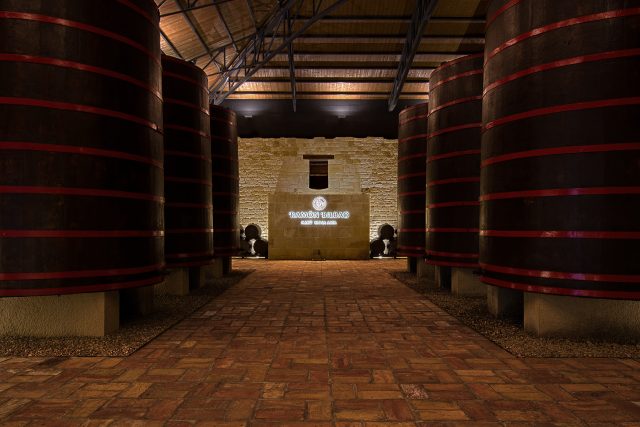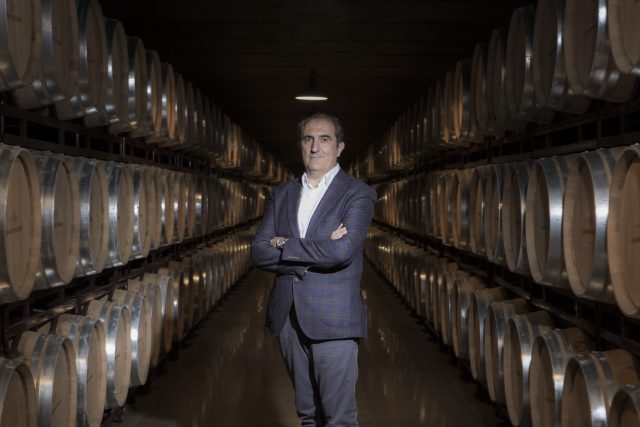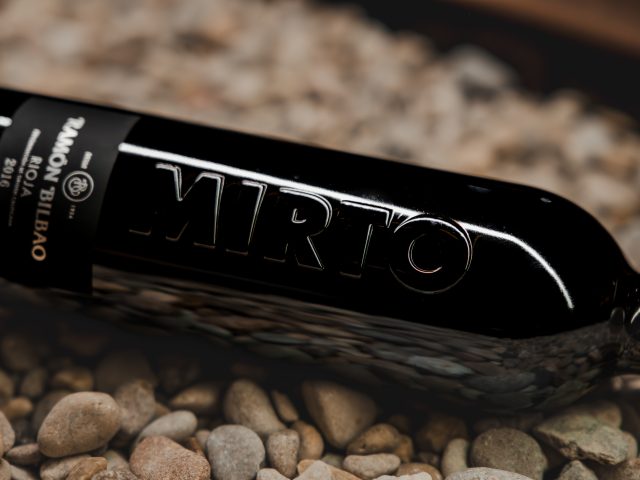This website uses cookies so that we can provide you with the best user experience possible. Cookie information is stored in your browser and performs functions such as recognising you when you return to our website and helping our team to understand which sections of the website you find most interesting and useful.
Ramón Bilbao reflects on its centenary year
Rodolfo Bastida, winemaker at the Rioja producer, gave db his thoughts as Ramón Bilbao starts its centenary celebrations.

Don Ramón, the founder of Ramón Bilbao, spent most of his life striving towards his eponymous bodega. After café work, opening a grain warehouse and planting his own vineyards, he finally established the company in 1924. Five years later, he died, and his son Enrique Bilbao inherited the company.
Yet, despite seeing just a few vintages, his “enduring spirit” still guides the company’s work, according to winemaker Rodolfo Bastida. “What has remained steadfast is the nonconformist spirit of the founder and the entrepreneurial ethos,” he says, as Ramón Bilbao reflects on its centenary. “The commitment to continuous improvement with each harvest persists.”
The bodega, however, now operates at a scale and quality that would have thrilled the founders. Its scope has expanded with new sites, its technologies now allow precise winemaking and its operations are truly international. The ethos has not changed, but 100 years of growth and careful investment has transformed Ramón Bilbao’s potential. “There has been a shift from mere dreams to tangible realities,” he says.
Bastida declares a clear, though not easy, goal for the bodega: “unique wines capable of showing the purity and the essence of terroirs and landscapes.” The words ‘respect’ and ‘sincerity’ are frequently on his lips, as the producer seeks to convey Rioja through fruit-forward, succulent wines. It requires “a meticulous and humble approach to the terroir,” says Bastida, though he is keen not to forget the “commitment and connection” of the local population in building Rioja’s reputation.
The meticulous approach is clear in the portfolio. Alongside an award-winning range for everyday drinking, Rodolfo Bastida has led the Ramón Bilbao team to focus attention on unusual single-site expressions in its Lalomba range. Continuing the curious, nonconformist attitudes of its founder, these vineyards are often in cooler areas of the Rioja Alta and the Rioja Oriental, where unique grapes thrive. They are some of the most prized of the bodega’s 250 hectares.
Yet even beyond its own vineyards, Ramón Bilbao has a meticulous sourcing approach. The portfolio is supported by the local population’s knowledge and dedication through long-term growing partners.
This century of hard work has seen plenty of challenges. Founded in the aftermath of the First World War, with the Spanish Civil War and the Second World War within its first 20 years, the backdrop was tumultuous from the start.

Perhaps the greatest change in 100 years, and the biggest natural challenge for Ramón Bilbao in its centenary year, is the changing climate. It has pushed the environment to the top of the agenda. “There is a strong focus on advancing sustainability,” says Bastida, “and recognizing the responsibility to enhance the environment.”
That responsibility is now at the forefront of Ramón Bilbao’s work. It joined the Wineries for Climate Protection programme in 2017 and the International Wineries for Climate Action collective in 2023. The schemes promote a variety of sustainable initiatives, driving bold ambitions from their members.
Ramón Bilbao has already hit key targets; for instance, its plant now uses 100% renewable energy. Other projects have further cut carbon emissions, such as lightening bottles to reduce carbon emissions from transportation.
The work also requires a direct relationship with the land. Planting native species has created biodiverse havens around the vineyards, while Ramón Bilbao’s organic range is protecting nature, encouraging winemaking innovation and responding to consumer trends.
As the business has grown, so have its vineyard holdings. Ramón Bilbao expanded beyond Rioja in 2016, producing Verdejo wines in Rueda. “The allure of Rueda,” says Bastida, “lies in the extreme nature of its landscape and the remarkable ability of the Verdejo variety to produce exceptional wines under challenging conditions.”
The team is also keeping an open mind to future expansion beyond Ramón Bilbao’s centenary. As Bastida explains, “the key criteria would be a distinctive terroir, the presence of highly adapted local grape varieties, and a deep exploration into the historical narrative of the wines.”
As for his drink after a day’s work winemaking, Bastida finds it hard to narrow down the options. Though he professes a love of Pauillac – perhaps unsurprising, since it shares Rioja’s traits of velvety texture and ageing potential – he mostly returns to the company’s own range.
For an evening of relaxation and reflection he leans towards “a tasteful interpretation of classicism” in the Ramón Bilbao Gran Reserva 2015 or the Reserva 2018. If feeling more adventurous, the punchy Limite Sur and Limite Norte wines are a favourite. The duo make use of high altitude sites and older, often forgotten Rioja varieties, in a style that the bodega proudly believes is pushing winemaking boundaries in Rioja.
However, if forced to choose just one, the Mirto de Ramón Bilbao 2016 stands out. “Direct and unapologetic,” in Bastida’s words, “it provides a quick journey through the coolest and most special villages of the region, where arguably the best tempranillos in the world are produced.”
As Ramón Bilbao’s flagship wine it is a fitting choice. Yet, with the bodega’s curious approach, there is no chance of it resting on its laurels. Bastida and his successors will have plenty more sites to uncover, and top wines to craft as Ramón Bilbao enters its second century.


